
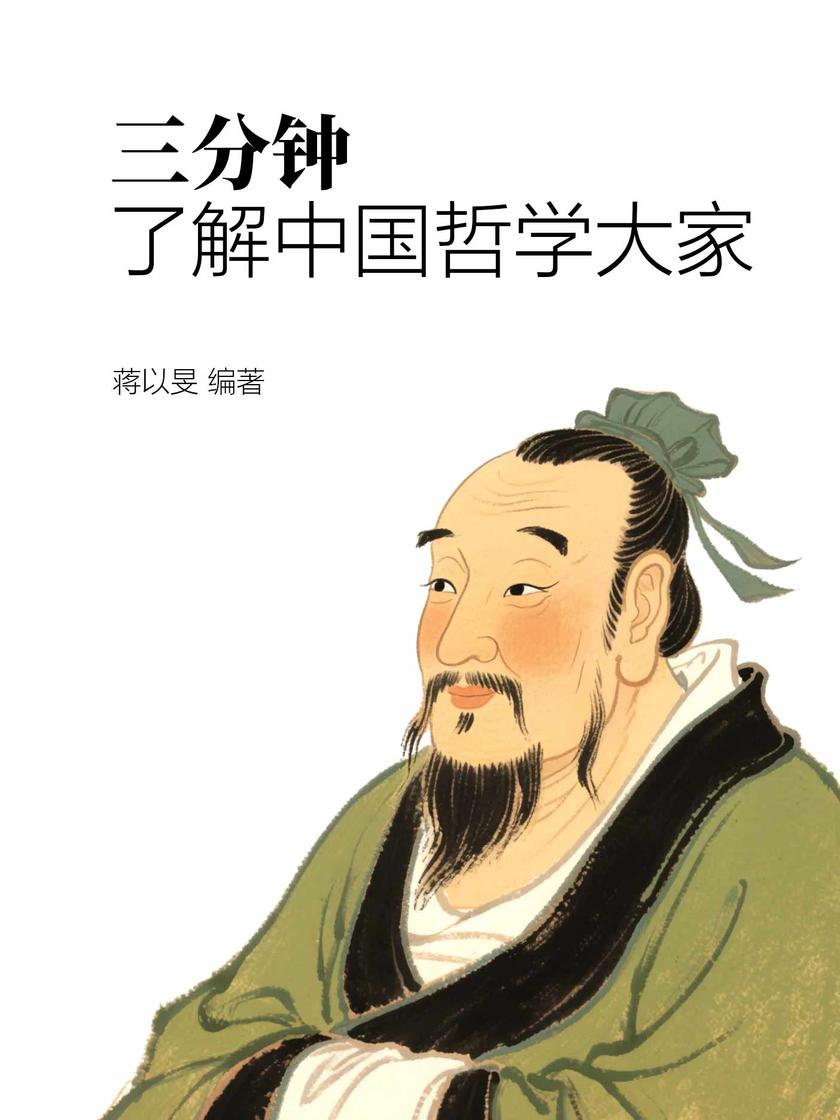
三分钟了解中国哲学大家
¥19.99
想快速领悟中国哲学巨人?想了解华夏文明史上的思想巨匠与他们的经典语录与逸事吗?本书以“三分钟一位哲人”的简明方式,带您速览中华文明的影响力哲学大家: 孔子以“仁”立说,老子道法自然; 孟子主张性善,荀子倡言性恶; 庄子逍遥物外,墨子“兼爱非攻”…… 每篇提炼哲学家的个人简介与核心命题、经典语录、逸事,让您快速了解哲学大家们的思想精华。

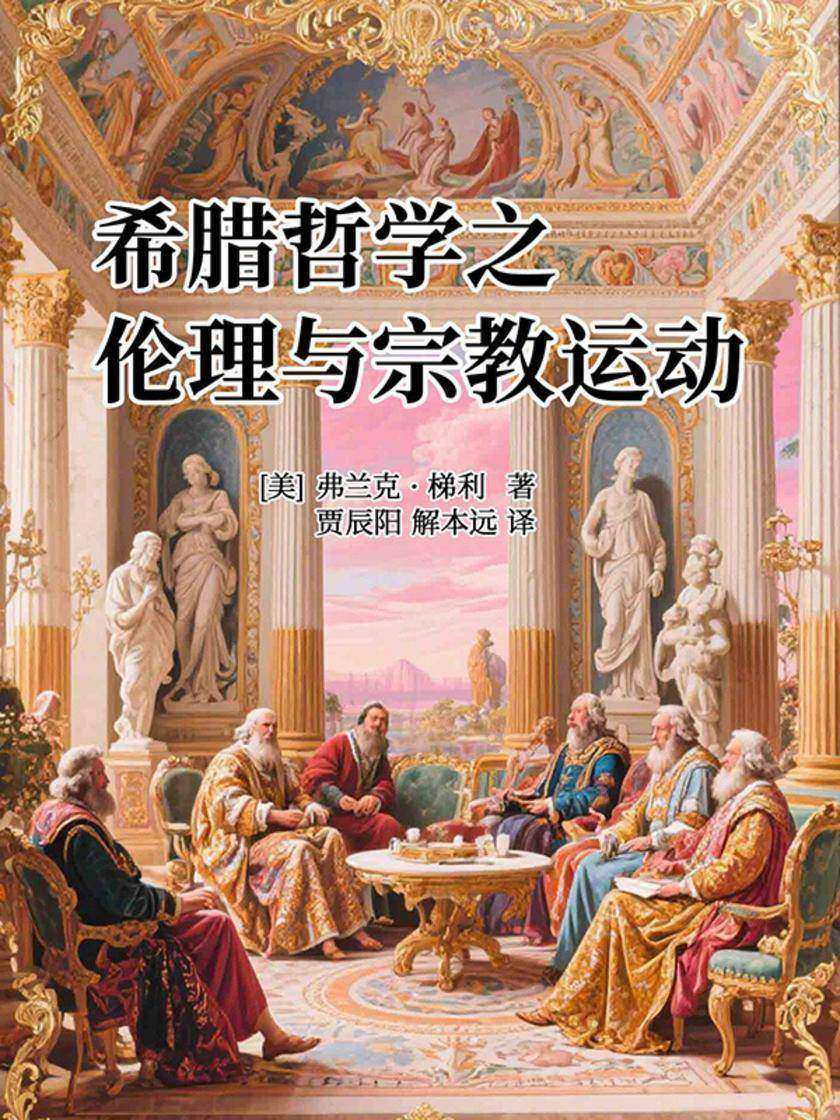
希腊哲学之伦理与宗教运动
¥19.99
作品为弗兰克·梯利《西方哲学史》节选,聚焦希腊化至罗马时期的哲学转向,分别探讨伦理学体系的重构与宗教哲学的兴起。其中《伦理运动》系统梳理乐希腊化时期三大伦理学派的哲学实践,第五篇《宗教运动》则追踪哲学与宗教的融合。

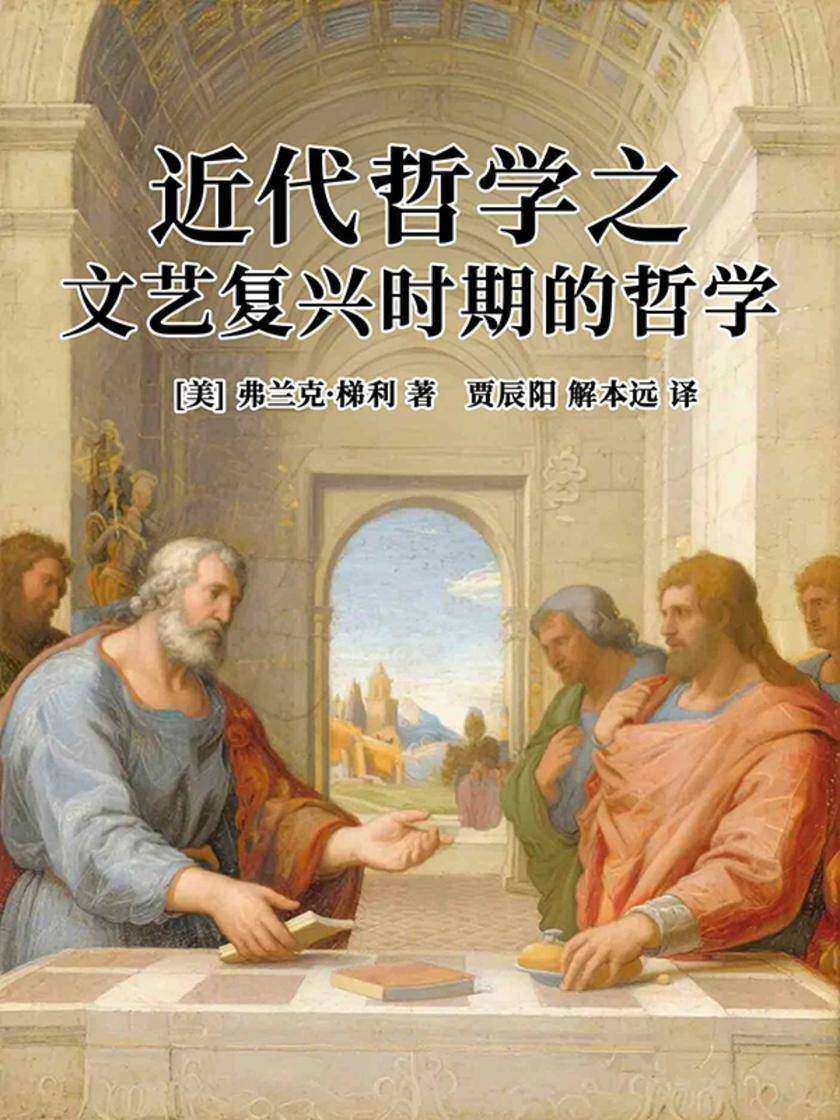
近代哲学之文艺复兴时期的哲学
¥19.99
作品为弗兰克·梯利《西方哲学史》节选,聚焦14-16世纪欧洲思想转型,系统阐述人文主义与自然哲学的兴起及其对中世纪神学的突破。核心内容包括人文主义、自然哲学转向、宗教改革以及革新认知论(蒙田的怀疑主义与库萨的尼古拉的“对立统一”思想,挑战经院哲学独断论,为经验主义与理性主义埋下了伏笔)。这一时期通过“人的发现”与“世界的发现”,完成了从神学束缚到个体理性觉醒的过渡,成为近代哲学与科学革命的直接思想源头。

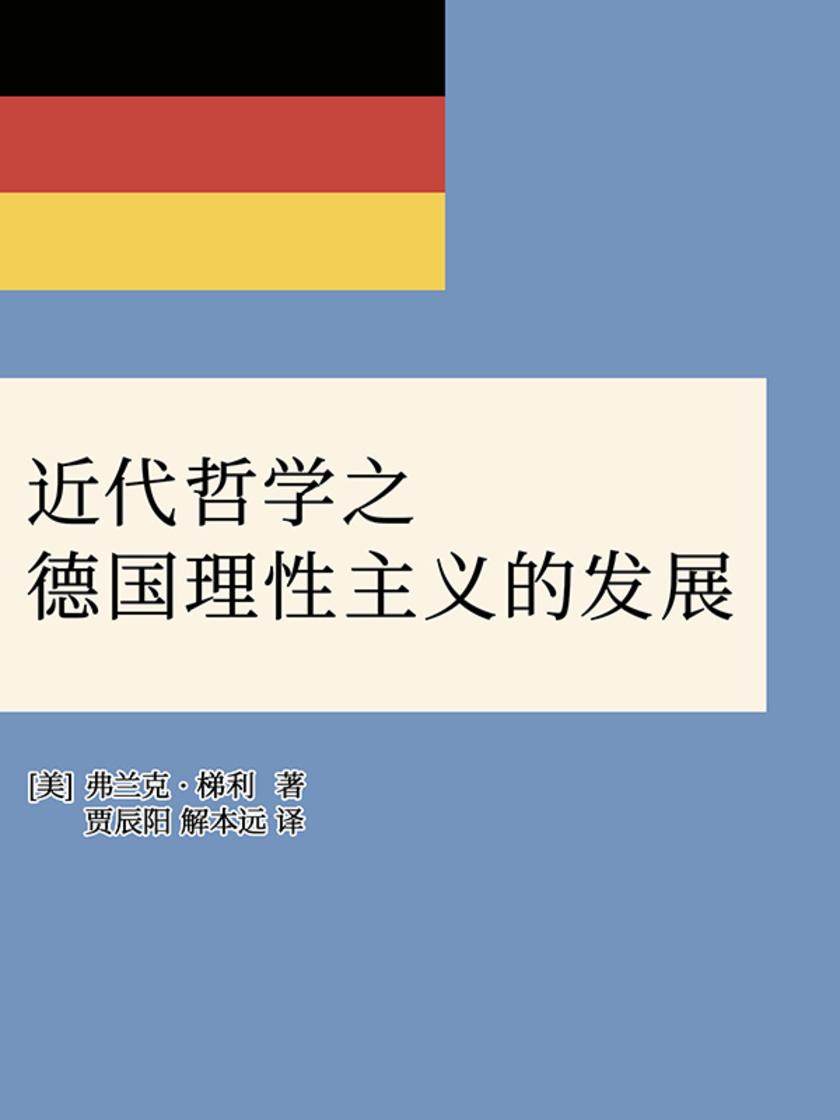
近代哲学之德国理性主义的发展
¥19.99
作品为弗兰克·梯利《西方哲学史》节选,这部分讲述了17至19世纪德国理性主义哲学的演进脉络,聚焦莱布尼茨、康德、黑格尔三大思想家的理论突破。作者梯利强调,德国理性主义通过将理性从认识工具升华为存在本体,既回应了经验主义的挑战,又为现代哲学(如存在主义、分析哲学)提供了方法论基础,但其过度抽象化倾向亦埋下了反叛的种子。

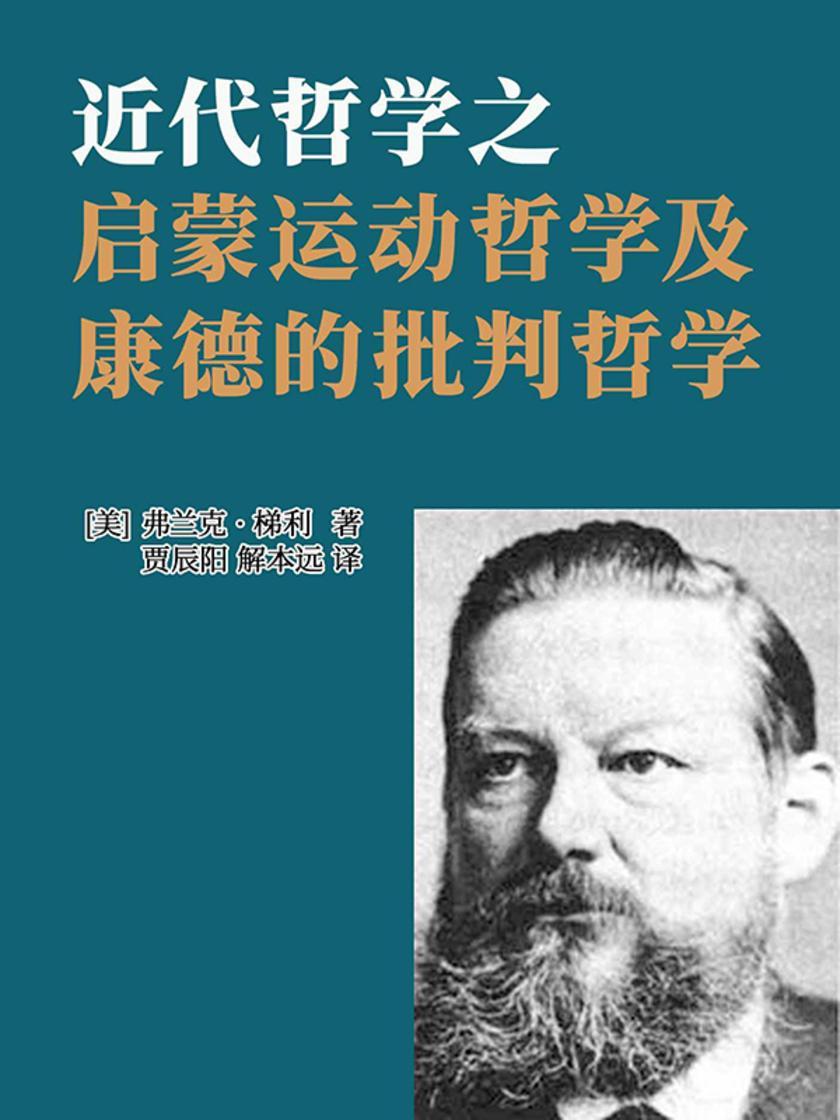
近代哲学之启蒙运动哲学及康德的批判哲学
¥19.99
作品为弗兰克·梯利《西方哲学史》节选。18世纪思想史的两大关键节点都在这一部分(其中康德哲学深刻地影响了德国古典哲学与现代思想),梯利通过这两篇,揭示了启蒙运动如何以理性为旗帜推动社会变革,而康德则通过批判理性为现代哲学确立方法论边界,二者共同构成近代思想转型的核心脉络。

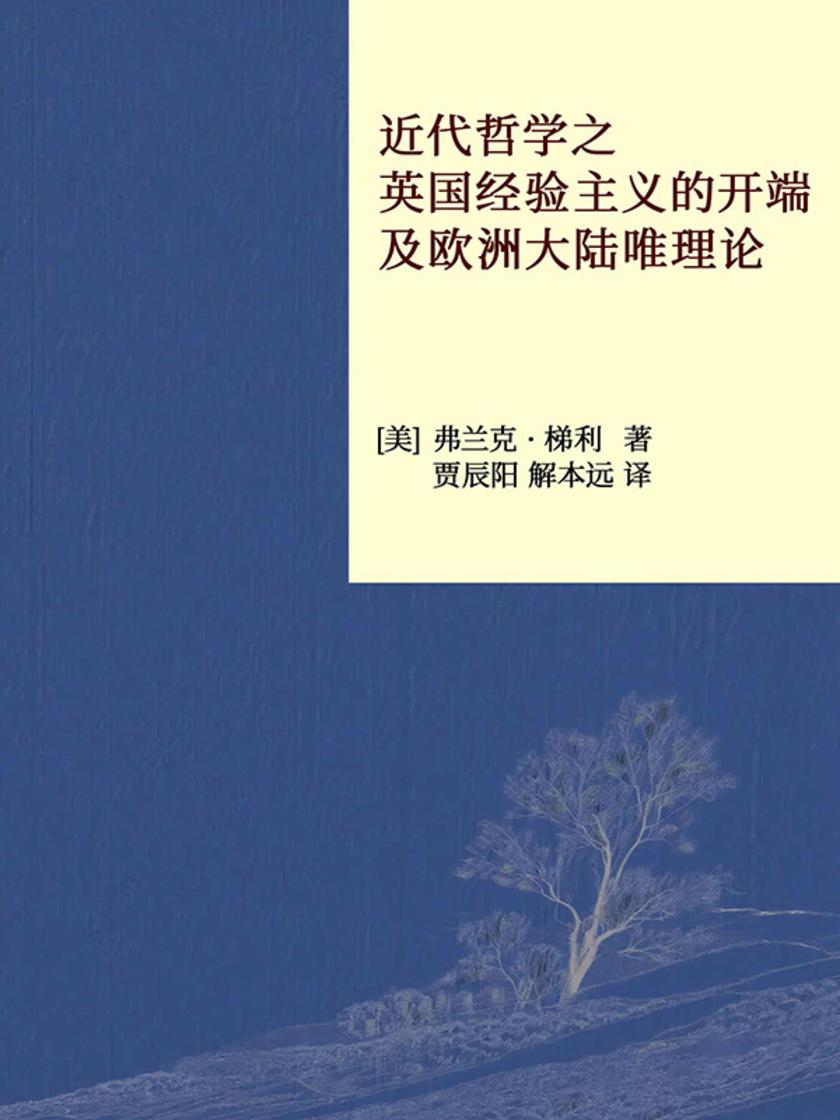
近代哲学之英国经验主义的开端及欧洲大陆唯理论
¥19.99
作品为弗兰克·梯利《西方哲学史》节选,系统阐述了近代哲学两大对立思潮的起源与核心主张。《英国经验主义的开端》着眼于17世纪英国经验论的兴起,以培根为起点,展示其如何批判经院哲学的抽象思辨,提出“知识即力量”的实证导向。第十二篇《欧洲大陆的唯理论》以笛卡尔、斯宾诺莎为核心,探讨理性主义对经验论的回应。这一部分指出,大陆唯理论以理性演绎为核心,追求知识的普遍必然性,但忽视经验验证,*终会陷入独断论。经验论与唯理论二者共同推动认识论转向,为康德批判哲学埋下伏笔。

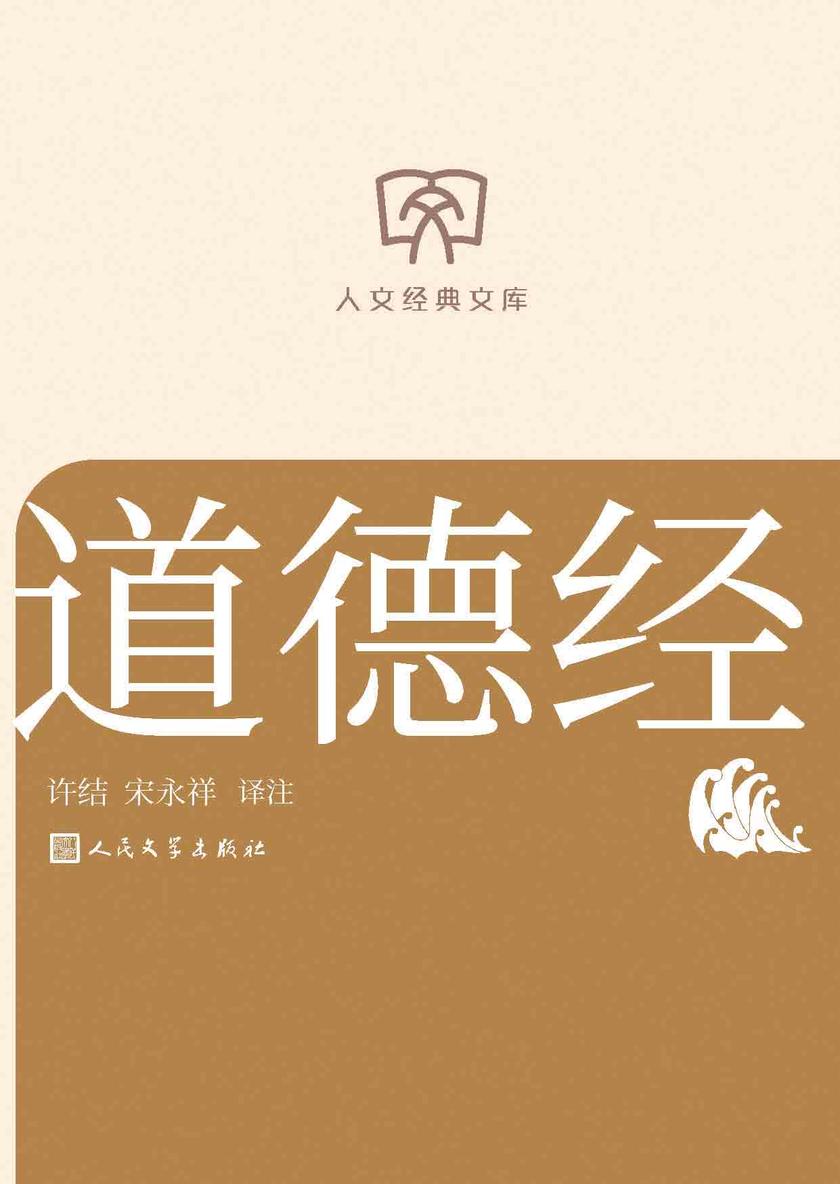
道德经
¥18.00
《道德经》又名《老子》,是先秦伟大思想家老子的著作,也是道家学派的经典文献,是中国传统文化重要的思想源泉之一。本书以《老子》王弼注本为底本,参照众家加以考订、注释、白话翻译,并设置“文化史拓展”、“问题分析”等栏目,对于老子的道家思想进行深入浅出的论析,对其与中国传统文化的关系做了精到的论述,是一部适合大众了解、研习《老子》的优质读本。

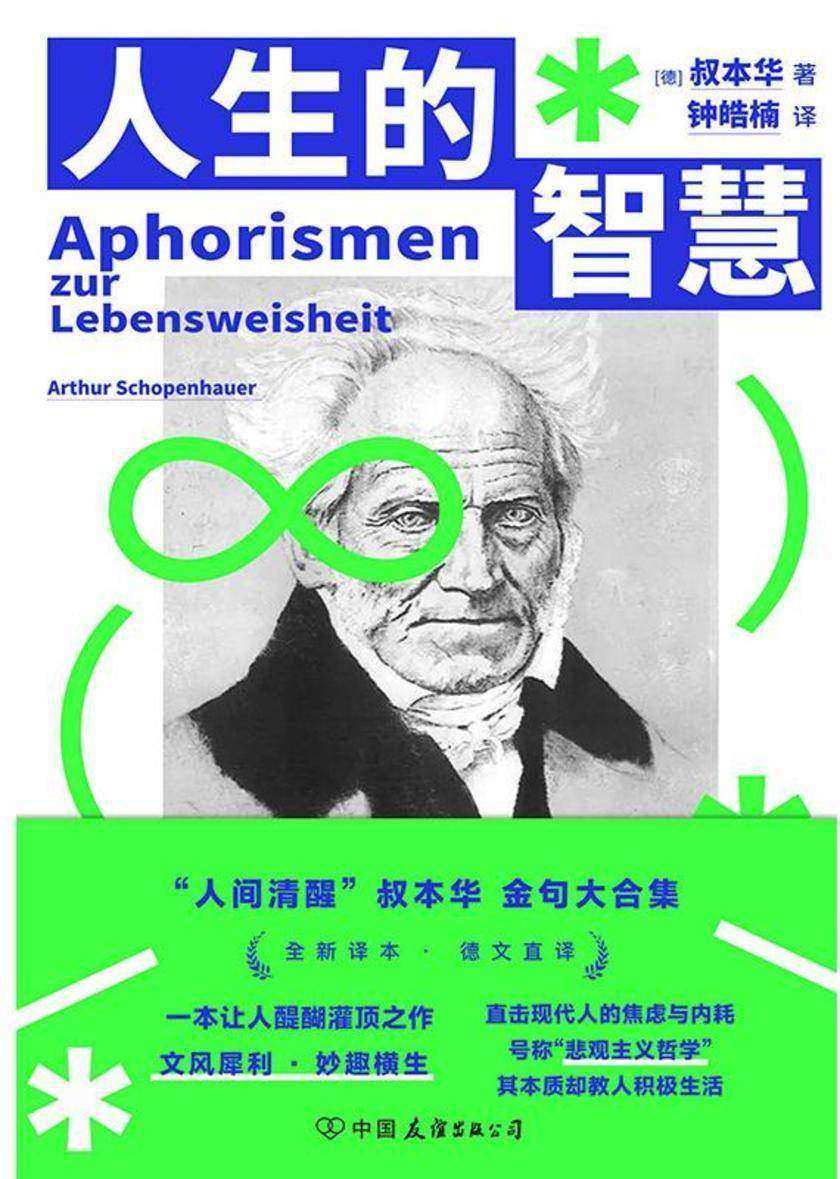
人生的智慧 德语直译新译本 叔本华幸福课
¥45.00
《人生的智慧》是德国哲学家叔本华的代表作之一,也是他的名著《附录和补遗》一书中内容的一部分。 在书中,叔本华以优雅的文体,格言式的笔触谈论“人生的智慧”这一宏大的主题。他从三个渐的层次梳理这一问题: 品性,或人是什么? 财产,或人拥有什么? 地位,或人在他人评价中的位置。 金钱、名誉、健康、闲暇…… 几乎所有左右我们的幸福感的要素均被端上“手术台”,逐一剖析。 叔本华认为,人类的幸福主要取决于人自身的内在因素,主要包括正直的品格、良好的智力和健康的体魄。

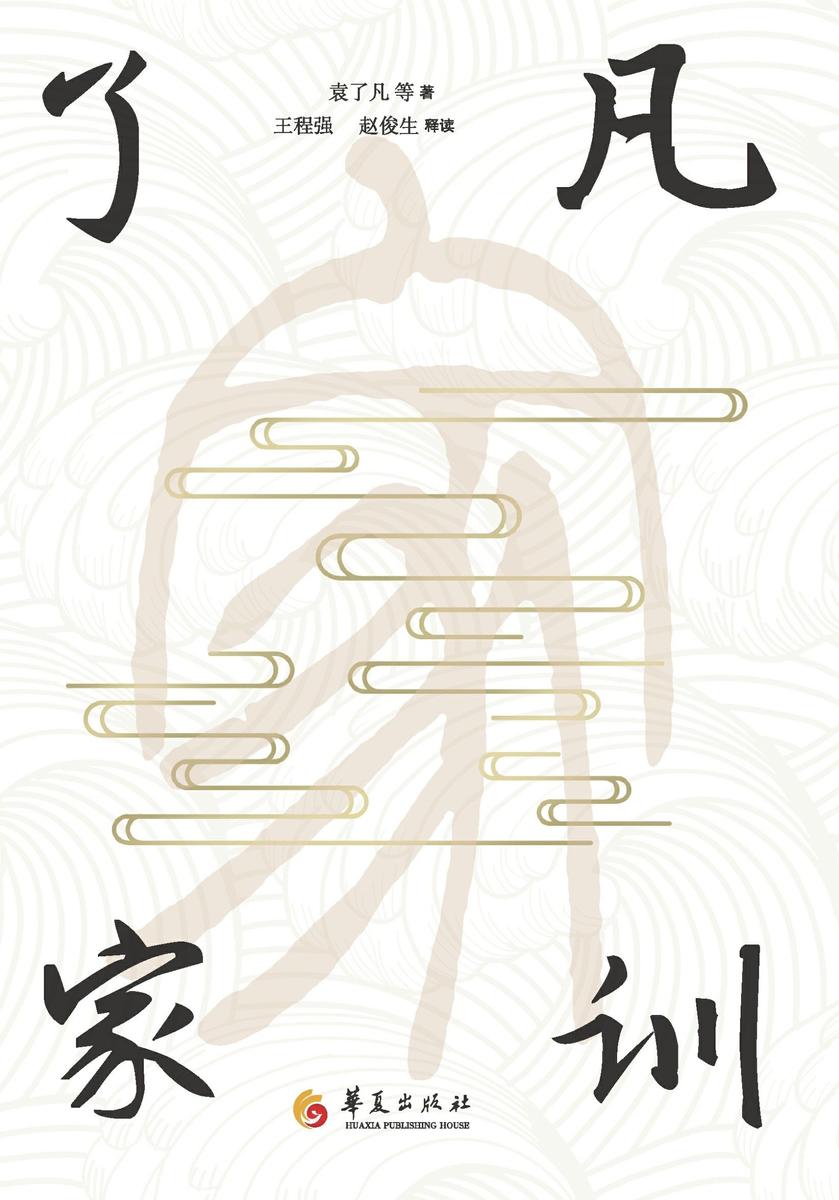
了凡家训
¥24.50
本书包含《训儿俗说》和《庭帏杂录》两部分内容的白话文解读及原文附录。《训儿俗说》8章分别是立志第一、敦伦第二、事师第三、处众第四、修业第五、崇礼第六、报本第七、治家第八,是名副其实的家训,自成体系。了凡教育儿子,内容具有逻辑化、条理化、具体化、日常化、琐碎化、实操化特征,通过滴滴的习惯养成,而成就一个修身、齐家、治国、平天下的圣贤,这是系统化的培训套餐。《庭帏杂录》是了袁仁夫妻的言行记录,具有语录化、故事化,甚至表演化的特征,这倒不是说袁仁夫妻故作表演,而是指他们的言行形象、生动,在言行中透露出道理和道德的教化功能。本书既包含日常做人做事时的洒扫应对,又包含修身养性时的身心修炼,还包含参悟人道和天道的指导原则和具体方法。


周易易读
¥47.60
《周易》居于“群经之 首”,是经学的核心,其思想精神已融入中华民族的人文心理和价值观念之中,成为中华民族精神的重要组成部分。本书以深入浅出的方式介绍了《周易》的起源、发展以及在历史、文化、科学等方面的应用和影响,并对六十四卦的卦辞、爻辞进行了详细的解读。 · 从基础概念讲起,梳理《易经》/《易》/《周易》等易混淆概念,解释经、传,八卦、六十四卦,挂辞、爻辞的定义及之间的关系。 · 介绍与《易经》相关的中国古典传统朴素唯物主义哲学基本知识,如气一元论的世界观。 · 简要介绍卜筮、算卦、解卦的方法。 · 详细解读六十四卦卦意、卦辞,逐句解读爻辞,阐述六十四卦之间的关系,论述其中蕴含的中国传统文化思想。 · 结尾附文言、系辞、说卦、序卦、杂卦原文。


这世界无处不美:星云大师对人间的祝福
¥15.99
这世界美不美?可以很美,也可以很丑。心中怀有美好,你看到的便是一个美好的世界;心中怀着丑恶之念,你看到的便是一个丑恶的世界。在书中,星云大师告诉我们,只要以阔的心胸去包容世间的各种人、事、物,自然能看到美好的一面,领悟到世界上真正美妙、可爱之处。 108幅星云大师亲笔题写的一笔字书法,108则精妙禅故事。再加上星云大师精心甄选的108幅摄影作品,每幅摄影作品,星云大师都专门配有一段精妙的禅语。“108”是个吉祥的数字,寓意圆满。星云大师借由这本书,表达了他对世人虔诚的祝福。


社约物与人:论人自由自己的约束
¥34.65
《社约物与人:论人自由自己的约束》基于马克思主义哲学、系统科学哲学、人学原理与中国传统文明的深度融合,构建社约物之论,提出了“人活明己,社约生息;和而不同,社约共赢”的明利己社约思想;构建了“个人-家-企-国-人类”“修-齐-营-治-平”的社约系统人观,本书对于中国传统文明与现时代融合具有积极的探索意义。

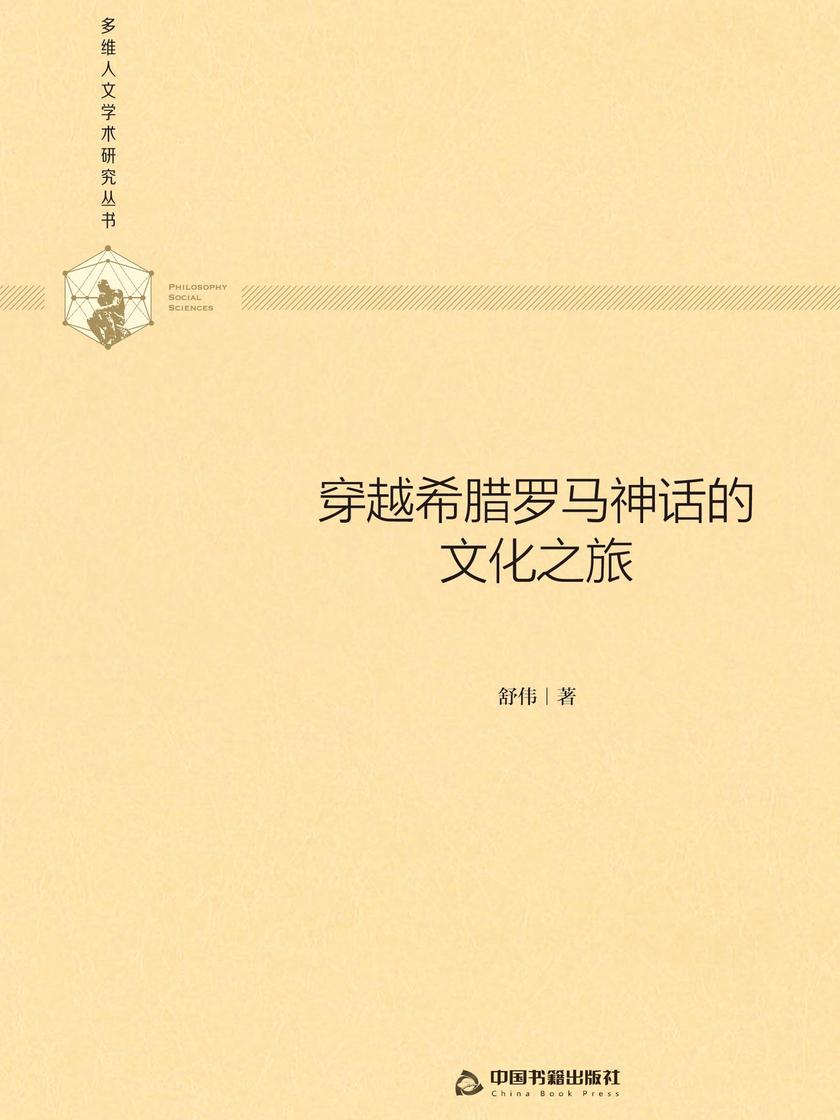
穿越希腊罗马神话的文化之旅
¥33.25
作为一个不断被讲述的深邃恒久的神话叙事经典,希腊罗马神话千百年来对西方文化和文学艺术产生了不可磨灭的影响。本书从当代文化视野对希腊罗马神话的重要文化母题及重要叙事题材行提炼和探讨,以揭示希腊罗马神话的基本面貌、讲述范式和艺术特色,帮助读者增强文化修养,培养审美的敏感性和鉴赏力。本书主要内容包括希腊罗马神话的概论及重要特;希腊神话叙事中的世界起源、神界秩序、人类社会;神话基本母题,如傲慢自大、竞艺与竞技、罪与罚、神谕的秘密,等;神话基本题材,如家族与命运、人间深情、地下之旅、飞天之旅、发现之旅,等;以及希腊罗马神话中的星座故事、神话与英语语言词汇、希腊罗马神话对童话文学的影响,等。附录中辑录了希腊罗马神话的男性神祇,女性形象和怪物异类资料。


儒藏论坛.第十五辑
¥31.15
《儒藏论坛》是由四川大学《儒藏》编篆委员会独家主办的学术论文合集,旨在弘扬儒学文化、儒家精神与巴蜀文化,及时反映《儒藏》的编纂情况。本文集每年出版2辑。《 儒藏论坛》第1 5辑中共收录论文21篇,分为“儒学论衡”” 儒学文献”“研究综述” ”书评” “儒学随笔”五个部分,对有关儒学研究的学术论文行了归类,内容涉及儒学人物、文献、流派(如甘泉学派)、思想、文化、教育及儒学史、蜀学研究(如有关《全蜀艺文志》的研究等。


“日常生活”与中国现代美学研究
¥31.15
使熟悉的成为陌生的、在平淡中见出惊奇,通常看来是作家惯用的技巧、手段,但是因此能够建立起颇具影响的文学理论。它的奥秘在于把文学与生活行了创造性的联系。文学与生活之间本就是相通的。文学包含一种自由的、游戏的精神,文学创作是可以按照某种程式运作的艺术活动,文学欣赏则是愉悦性的受行为。文学作品以具体、形象的方式显示生活真实,是作家的创造物、读者的受对象。

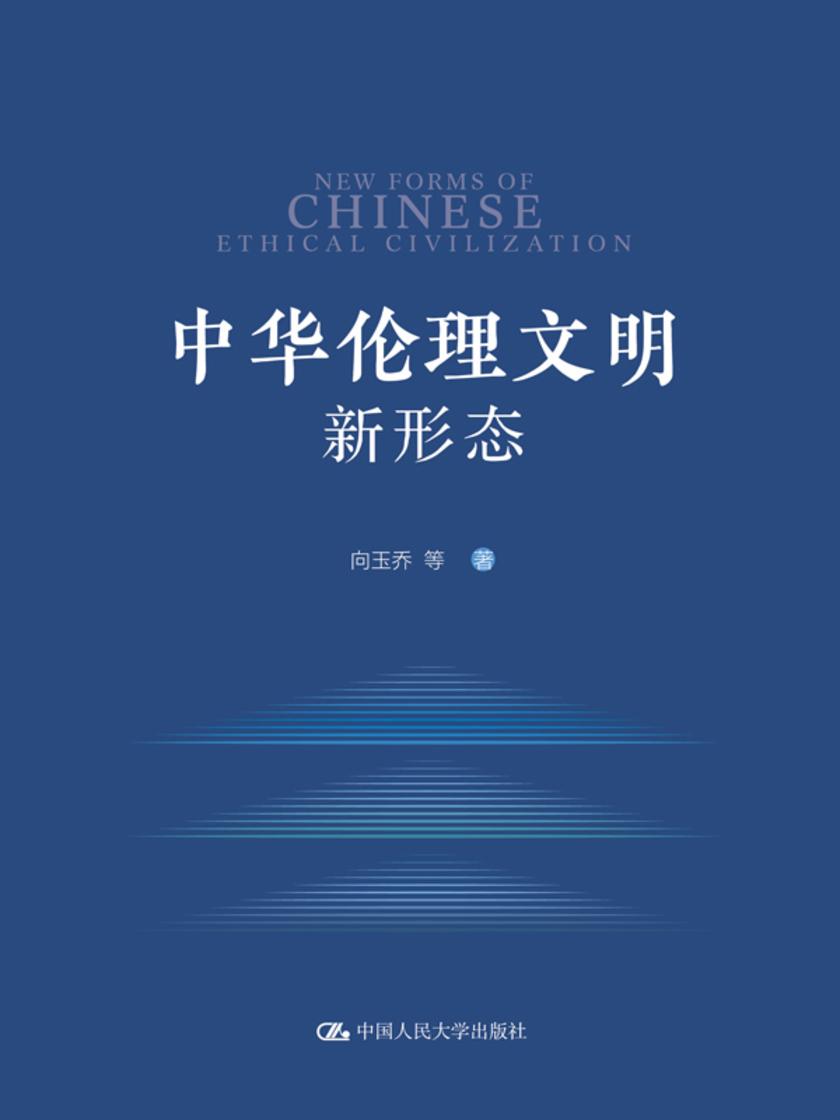
中华伦理文明新形态
¥58.80
本书论述了“中华伦理文明新形态”,将其界定为人类文明新形态的伦理内核和中华伦理文明演发展的最新成果,对中华伦理文明新形态的内涵要义、思想基础、生成机理、主要内容、建构实践、话语体系等展了深系统的探究对“人类文明新形态”的伦理向度作了深系统的理论阐释,提出了伦理学研究的新议题,辟伦理学理论研究新方向。中华伦理文明新形态是一个前沿性论题,对其展深系统的研究有助于拓展中国伦理学理论研究的范围。


新时代网络思想阵地建设研究
¥33.25
本书是山东省社会科学规划项目(编号 19CKSJ03)的结项成果。意识形态安全是国家安全的核心要素,互联网络已是当前思想阵地建设的 *前沿。书稿以马克思主义中国化的*新理论成果为指导,研究目的是巩固马克思主义在意识形态领域指导地位的根本制度。作者从网络 意识形态斗争的基本现状入手,分析研判网络意识思想阵地建设的各方面现状,要统筹各个领域有可能出现的风险点,增强风险意识,力 争在网络意识形态斗争中敢于亮剑、打好主动仗,为*建设社会主义现代化国家创造良好的思想环境。


哈佛逻辑课(畅销4版)
¥23.99
逻辑与人类理性思维的关系犹如空气与生命,我们绝不会因为空气看不见摸不着而否定它对于生命的意义。人类与生俱来的逻辑思维能力,正是与动物的重要区别之一。具有超常逻辑思维能力的人,走到哪里者是卓尔不群的。请让我们跟随大学的教授和学子们,一同走哈佛的逻辑思维世界。在领略哈佛风采的同时,带你走一个与众不同的精彩人生。

完全图解哲学
¥1.09
怀疑与思考是人类的天性,而当人类开始怀疑与思考自身与世界万物的本原,并加以诠释时,“哲学”就诞生了。本书以活泼的文字、有趣的故事和简明易懂的图解,呈现东西方哲学在历史长河中萌发与演变的轨迹,用伟大思想家的名字联缀成一部2500年生动的哲学史,是专为哲学入门读者量身打造的读本。阅读本书,将是一次奇妙的精神之旅,为你解答人生的困惑,让你学会正确思考,增长智慧,完善自我。


培根随笔:人生这道难题
¥9.90
从这部《培根随笔》所体现的思想来看培根,我们可以这样评价他:培根是一个乐观的、进步的人文主义者;是一位政治思想十分开明的君主立宪论者;是对人类进步和社会正义充满信心的一个理想主义者;在宗教上是一个自然神论者和理性主义者。
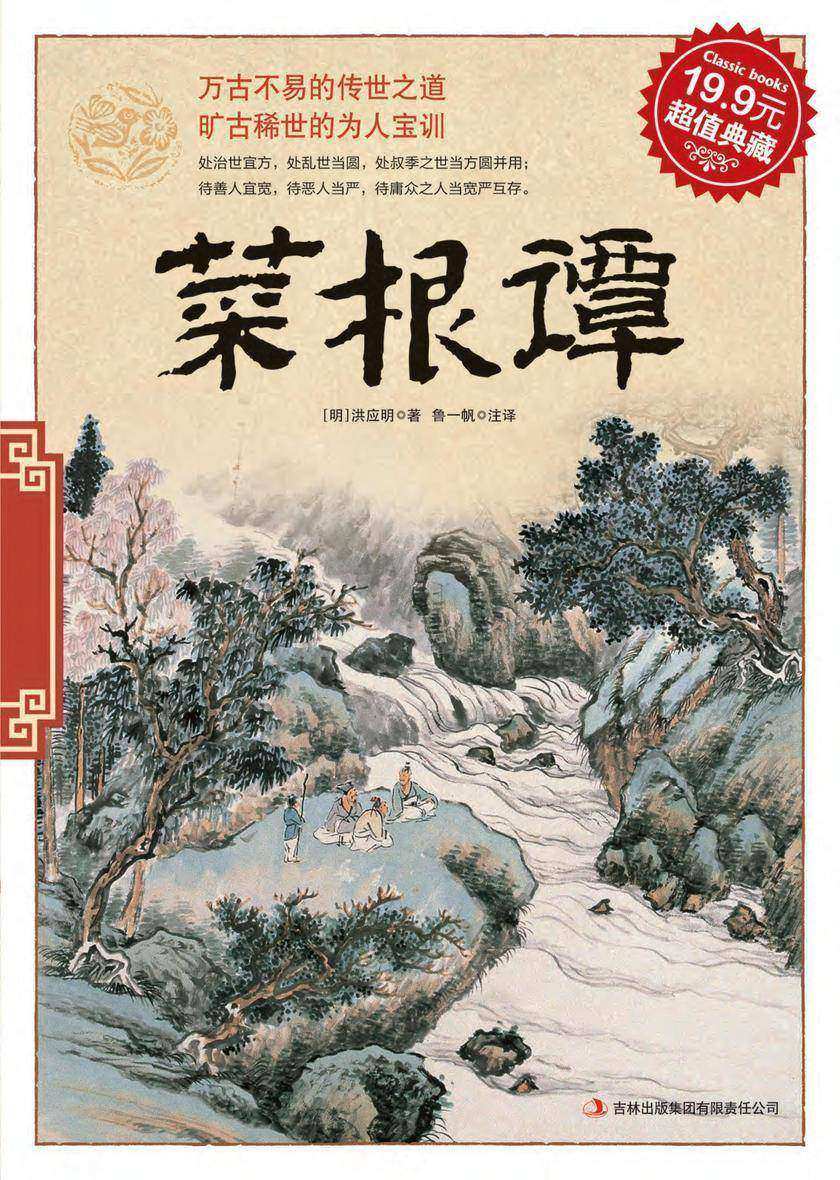
菜根谭
¥3.48
《菜根谭》成书于明代万历年间。作者洪应明,字自诚,号还初道人,生平事迹不详。400多年来,《菜根谭》广为流传,历久不衰,人们对其评价颇高。古人云:“性定菜根香。”又谓:“咬得菜根香,寻出孔颜乐。”一代伟人*也说:“嚼得菜根者百事可做。”




 购物车
购物车 个人中心
个人中心



